#seabed mining
Explore tagged Tumblr posts
Text
Excerpt from this story from Hakai Magazine:
When Arvid Pardo, a Maltese diplomat, took the floor at the United Nations General Assembly in New York in 1967 and began speaking at length on international law, the room was sparsely populated. Pardo was undeterred.
The deep, dark ocean, he said, is the womb of life. “We still bear in our bodies—in our blood, in the salty bitterness of our tears—the marks of this remote past.” With technology fast progressing, “man, the present dominator of the emerged earth, is now returning to the ocean depths. His penetration of the deep could mark the beginning of the end for man, and indeed for life as we know it on this Earth; it could also be a unique opportunity to lay solid foundations for a peaceful and increasingly prosperous future for all peoples.”
Pardo argued that the deep seafloor falls outside the territory of any state. As humanity raced to exploit the “immeasurable wealth” already known to be hiding there, Pardo said that wealth should be viewed as the common heritage of humankind.
At a time when countries around the world were grappling with the Cold War along with the lingering consequences of colonization and exploitative resource extraction, Pardo’s treatise struck a nerve. After all, who should have access to the deep? Who should benefit from its wealth?
His speech—later characterized by historians as a “you should have been there” moment—set the stage for nearly a decade of negotiations. Eventually, those discussions resulted in the United Nations Convention on the Law of the Sea (UNCLOS) containing this language: that any industrial activity on the international seafloor must “be carried out for the benefit of mankind as a whole.”
Today, with deep-sea mining companies closing in on mineral-rich rocks called polymetallic nodules, policymakers at the International Seabed Authority (ISA)—the intergovernmental body that governs activities on the seafloor in international waters—are still grappling with the challenge passed down by Pardo. If the resources on the international seafloor are the common heritage of humankind, as UNCLOS states they are, then what, exactly, does that mean? With little to no precedent to rely on, and with the reality of deep-sea mining inching ever closer, the ISA and its member states are in the process of figuring out how to make deep-sea mining work for all of humanity.
5 notes
·
View notes
Text
New Discovery: Polymetallic Nodules on the Seabed Generate Dark Oxygen Putting Seabed Mining Plans Into Question
0 notes
Text
Mining the seabed floor. Truth or fiction?
(TMC) the metals company Inc. It appears as if some newsletter publishers are pumping this company as the solution to the global deficit in electrification metals. Due diligence and common sense are key to avoiding pump and dump schemes. Maybe this company is the real deal, but I would ultimately wait for it to generate some revenues before taking it too seriously at this point. Stories do not…
View On WordPress
1 note
·
View note
Note
What's your favorite zone in PSO?



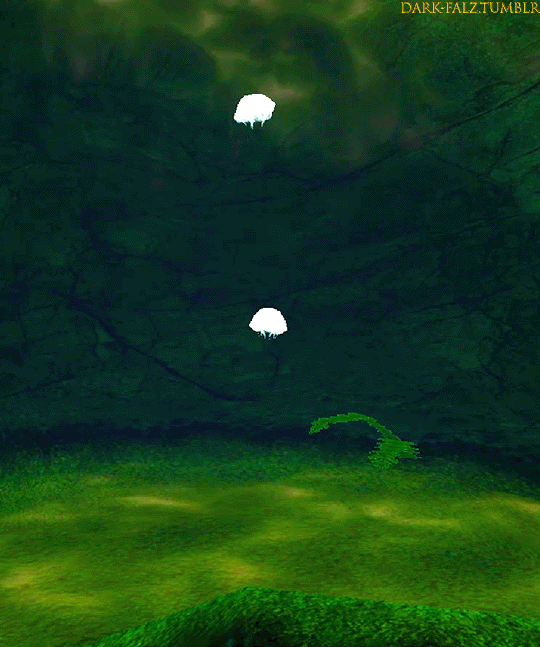


CAVES 2 MY BELOVED!!! Because between ultimate and non ultimate looks I love it just the same :3
and Jungle gets an honorable mention because not only is it so pretty the map is fun >:3

#tbh I don't really think there's an area I'm not fond of except a few ep4 maps don't thrill me??#I prefer ultimate versions of like forest and mines over not ultimate tho#seabed is really cool because of the variety of monsters too ;~; my precious delbiter#and control tower has ill gils and del lilies which are so NEAT and DEADLy
36 notes
·
View notes
Text
Brazil’s Carvalho to lead seabed-mining authority following predecessor’s controversial term

Brazilian oceanographer Leticia Carvalho will be the next secretary-general of the International Seabed Authority (ISA), the U.N.-mandated organization that oversees deep-sea mining activities in international waters.
She won the election with 79 votes, while her predecessor, 64-year-old Michael Lodge, who served as the ISA’s secretary-general for two terms, received only 34 votes.
Lodge has previously been accused of siding with mining companies, which went against the duty of the ISA secretariat to remain neutral and may have influenced the direction of the prospective deep-sea mining industry.
Carvalho previously told Mongabay that she would work to make the ISA more transparent and rebuild trust within the organization.
Continue reading.
#brazil#brazilian politics#politics#environmentalism#oceans#mining#leticia carvalho#international seabed authority#image description in alt#mod nise da silveira
6 notes
·
View notes
Text
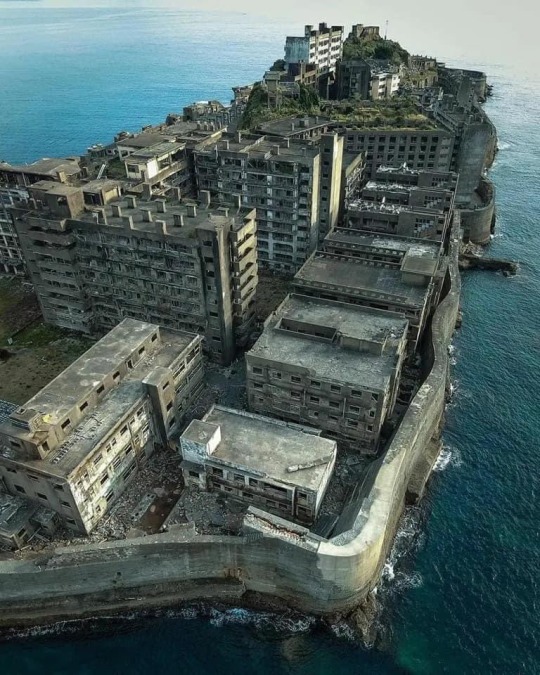
Gunkanjima Island - Nagasaki, Japan .
Once the most densely populated place in the world, this island is now a ghost town.
FEW PLACES IN THE WORLD have a history as odd, or as poignant as Gunkanjima’s.
The tiny, fortress-like island lies just off the coast of Nagasaki. The island is ringed by a seawall, covered in tightly packed buildings, and entirely abandoned - a ghost town that has been completely uninhabited for more than forty years. In the early 1900s, Gunkanjima was developed by the Mitsubishi Corporation, which believed - correctly - that the island was sitting on a rich submarine coal deposit.
For almost the next hundred years, the mine grew deeper and longer, stretching out under the seabed to harvest the coal that was powering Japan’s industrial expansion.
By 1941, the island, less than one square kilometer in area, was producing 400,000 tonnes of coal per year.
And many of those working slavishly in the undersea mine were forced laborers from Korea.
Even more remarkable than the mine was the city that had grown up around it.
To accommodate the miners, ten-story apartment complexes were built up on the tiny rock - a high-rise maze linked together by courtyards, corridors, and stairs. There were schools, restaurants, and gaming houses, all encircled by the protective seawall.
The island became known as “Midori nashi Shima,” the island without green.
Amazingly, by the mid-1950s, it housed almost six thousand people, giving it the highest population density the world has ever known. And then the coal ran out.
Mitsubishi closed the mine, everyone left, and this island city was abandoned, left to revert back to nature.
The apartments began to crumble, and for the first time, in the barren courtyards, green things started to grow. Broken glass and old newspapers blew over the streets. The sea-breeze whistled through the windows.
Now, fifty years later, the island is exactly as it was just after Mitsubishi left. A ghost town in the middle of the sea.
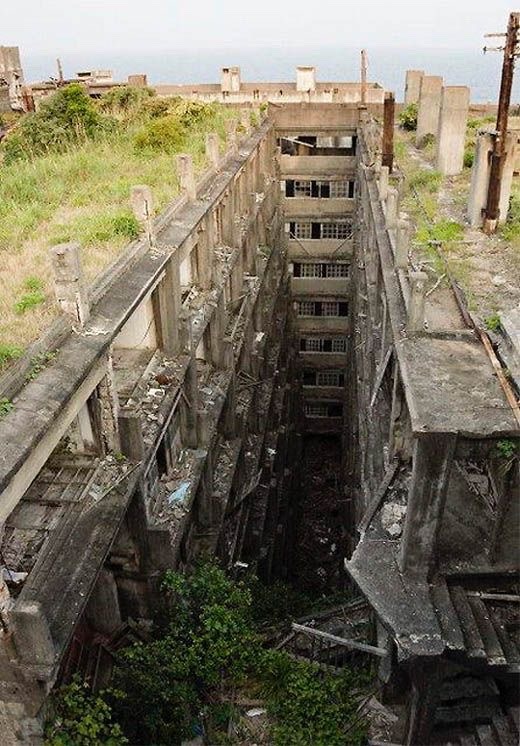
#gunkanjima island#japan#urban decay#abandoned#urban exploration#urbex#urban nature#remnants#urban photography#ruins#apocalypse#apocalyptic#dystopia#dystopian#postapocalypse#postapo#postapocalyptic#postapoc#wasteland#wastelands#scifi#fantasy#art#fallout#postnuclear#preppers#doomsday#doomsday preppers#bugout#bugoutbag
652 notes
·
View notes
Text
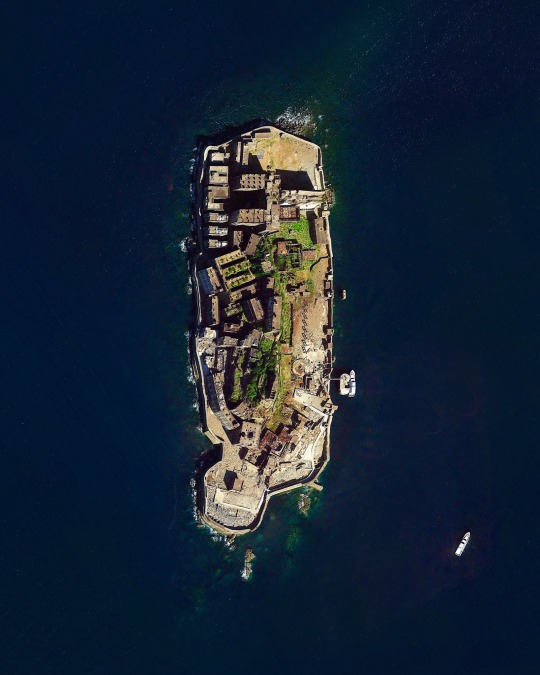
Hashima is a small abandoned island about 9.3 miles (15 km) off the coast of Nagasaki, Japan. The island was continuously inhabited from 1887 to 1974 as a seabed coal mining facility, with a peak population of 5,259 in 1959. However, as petroleum began replacing coal in Japan in the 1960s, the mine was closed and cleared of inhabitants. Its abandoned concrete buildings, undisturbed except by nature, and surrounding seawall make the island an eerie, yet popular, tourist destination.
32.627778°, 129.738333°
Source imagery: Maxar
311 notes
·
View notes
Note
What are your thoughts on the Cloverfield kaiju? Aswell as its parasites?
Cloverfield and his parasites are extremely cool and the lore around them is interesting; being creatures that eat seabed nectar being disturbed because a slushy company was mining for their food on an oil rig.
What they are depends on the adaptation, and I think the manga makes them aliens.
At the time the movie came out they were incredibly unique designs, but most modern Hollywood original monsters try to mimic the vibes of it and the Future Predator from Primeval. If they came out today the design would be a dime a dozen and I’m kinda sad that there isn’t as much wild variety in creature design as there used to. The only monster I can think of that really benefits from this archetype of design are the MUTOS.
199 notes
·
View notes
Text
Excerpt from this New York Times story:
The long-running battle over whether to allow Pacific Ocean seabed mining took an unexpected turn Thursday when a company disclosed it had been confidentially negotiating a plan with the Trump administration to circumvent a United Nations treaty and obtain authorization from the United States to start mining in international waters.
The proposal, which drew immediate protests from environmental groups and diplomats from some countries, represents a radical shift in the contentious debate over accessing deposits on the sea floor that contain copper, cobalt, manganese and other metals that are needed for electric-car batteries.
The International Seabed Authority, established 30 years ago by an agreement now ratified by more than 160 nations, has jurisdiction over seabed mining in international waters, outside the coastal areas of each nation.
The Seabed Authority has been slowly crafting regulations governing mining, which remains highly contentious because the potential effects of industrial activity on marine life are unknown.
Now the Trump administration, which has already expressed its desire to retake the Panama Canal and assume control of Greenland, is being nudged by the Vancouver-based Metals Company to disregard the Seabed Authority and grant it a license to start mining as soon as 2027.
Gerard Barron, the chief executive at the Metals Company, announced the maneuver Thursday after it became clear that it could still be years before the Seabed Authority finalizes mining regulations.
Contractors from nations including China, India, South Korea, Japan and Poland are also doing exploratory work in international waters under permits from the Seabed Authority, but none of them have been given permission to start large scale mining.
The Metals Company’s application would come in the next several months from a United States-based subsidiary of the company, and it would use a ship registered in the United States. The company would send a giant vacuum-cleaner-like machine 2.5 miles underwater to the ocean floor to suck up potato-size rocks that are loaded with metals.
Mr. Barron said executives had already met with Trump administration officials to promote their plan, which would also require a permit from the National Oceanic and Atmospheric Administration.
3 notes
·
View notes
Text
Sit back and enjoy 10 relaxing minutes at the Octopus Garden
youtube
Deep below the ocean’s surface, just off the Central California coast, thousands of pearl octopus (Muusoctopus robustus) gather near an extinct underwater volcano. MBARI and a team of collaborators used high-tech tools to monitor the Octopus Garden and learn exactly why this site is so attractive to these animals. After three years of study, researchers confirmed that Muusoctopus gather at the Octopus Garden to mate and nest in cracks and crevices bathed by deep-sea thermal springs.
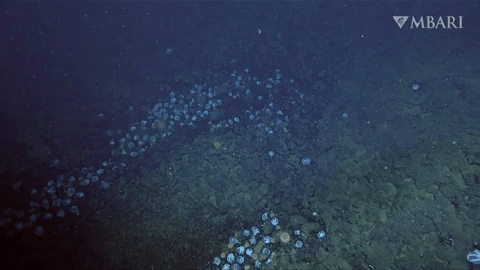
This site is the largest known aggregation of octopus anywhere in the world, with more than 20,000 octopus nests. The abundance of other marine life that thrives there underscores the need to understand and protect hotspots of life on the deep seafloor from threats like climate change and seabed mining.
#deep relax ocean#ocean#octopus#octopus garden#deep sea#deep ocean#marine life#marine biology#nature#science#Youtube
195 notes
·
View notes
Text
Filming on a television series, believed to be the first mainstream prime-time production to have 30 percent of its dialogue in te reo Māori, has just wrapped in Taranaki.
The Warner Brothers Discovery-backed drama Tangata Pai is being made in partnership with Te Atiawa iwi and Ngāti Te Whiti hapū.
It tells the story of five people whose worlds collide when a bomb is detonated at a peaceful Māori protest against a licence to mine a sacred site.
Writer-director Kiel McNaughton, who has whakapapa to Taranaki iwi and Parihaka, said the show had parallels with past struggles and contemporary issues such as seabed mining.
"In terms of Māori needing to stand up. Stand up for their rights, stand up for their land, stand up for what we believe in.
"And we are having to do that now and we were having to do that 140 years ago, so for me it's about looking at what's changed. Has anything changed?"
McNaughton, who is still on his reo journey, said it was important to normalise the use of the language.
"What's exciting about this is that it is being embraced by a broader network which has a much larger audience.
"And being able to get this 30 percent reo content, which shouldn't be intimidating for a non-Māori speaking audience, so for us to have that on Three and for Warner Brothers Discovery to support this is really exciting."
Former journalist Mereana Hond, who is from Taranaki and Ngāti Ruanui iwi, is overseeing the use of te reo and tikanga.
She said Tangata Pai would include subtitles to make it accessible to as many people as possible.
"The fact that it is 30 percent te reo Māori is what sold it to iwi that have chosen to be a part of this.
"This is a collaboration, it is a partnership, there is a memorandum of agreement between iwi and the producers to create something which tells our stories in a different way."
Theres heaps of background talent here in Ngāmotu, so that's been terrific to engage the local community and have them come and be a part of the series and the filming.
"And then we have lots of crew that we've brought from different parts of the country. The majority I would say from Auckland."
Warkia - who has Scottish and Papua New Guinea heritage - agreed with Hond that one of Tangata Pai's strengths was its illustration of how disputes could be dealt with.
"The idea of maungaarongo which is very much about creating space for people to speak even if they have very different opinions.
"Creating a space where they can specifically discuss all of those differences, and that is healthy and important and shouldn't be avoided."
Filming of Tangata Pai, which has Te Māngai Pāho and NZ On Air funding, has now moved to Auckland.
It will screen on Three and Three Now next year.
69 notes
·
View notes
Text

https://x.com/NOAA/status/1915814304634298817?t=lZ_l0dhPCqw5blds2PAmWw&s=19
Donald Trump just signed an executive order allowing for deep sea mining.
I genuinely feel like I'm going to cry.
This is an environmental emergency.
So much deep sea life is going to die from this. So many animals we know basically nothing about will be gone. It will take millions of years for the seabed to heal.
I can't take this anymore
#deep sea#deep sea creatures#ocean#deep sea mining#marine#marine biology#marine life#sea creatures#donald trump#trump#fuck trump
16 notes
·
View notes
Note
How does one get into international regulation of new technologies, it sounds niche and interesting
its easy to get into quite honestly - pick a type of regulation (law/policy/diplomacy) and an emerging technology (AI/autonomous weapons/drones/space/Deep seabed mining) and find universities or Institutions with people researching the same combination. given that these fields are often small, they are really tight knit communities of mostly young people welcoming you with open arms!!
for me it's that i studied space law, worked for my national space agency in the diplomatic department and for the united nations, and now i am part of a research group trying to answer the headache of a question of what law applies when international satellite-based navigation systems provide wrong information on accident.
it's the coolest job in the world and i think everyone should come join me in the wonderful and anxiety inducing playground that is trying to get states to agree to solve future problems BEFORE someone needs to make an app monitoring waterways for the titanic. for example
61 notes
·
View notes
Text
A new report by environmental groups lays out a case for banning deep sea mining—and explains why the real solution to humanity’s energy crisis might just be sitting in the trash.
Deep sea mining is the pursuit of rare, valuable minerals that lie undisturbed upon the ocean floor—metals like nickel, cobalt, lithium, and rare earth elements. These so-called critical minerals are instrumental in the manufacture of everything from electric vehicle batteries and MRI machines to laptops and disposable vape cartridges—including, crucially, much of what’s needed to transition away from fossil fuels. Political leaders and the companies eager to dredge up critical minerals from the seafloor tend to focus on the feel-good, climate-friendly uses of the minerals, like EV batteries and solar panels. They’ll proclaim that the metals on the deep seafloor are an abundant resource that could help usher in a new golden age of renewable energy technology.
But deep sea mining has also been roundly criticized by environmentalists and scientists, who caution that the practice (which has not yet kicked off in earnest) could create a uniquely terrible environmental travesty and annihilate one of the most remote and least understood ecosystems on the planet.
There has been a wave of backlash from environmentalists, scientists, and even comedians like John Oliver, who devoted a recent segment of Last Week Tonight to lambasting deep sea mining. Some companies that use these materials in their products—Volvo, Volkswagen, BMW, and Rivian among them—have come out against deep sea mining and pledged not to use any metals that come from those abyssal operations. (Some prominent companies have done the exact opposite; last week, Tesla shareholders voted against a moratorium on using minerals sourced from deep sea mining.)
Even if you can wave away that ecological threat, mining the sea might simply be wholly unnecessary if the goal is to bring about a new era of global renewable energy. A new report, aptly titled “We Don’t Need Deep-Sea Mining,” aims to lay out why.
The report is a collaboration between the advocacy group US PIRG, Environment America Policy Center, and the nonprofit think tank Frontier Group. Nathan Proctor, senior director of the Campaign for the Right to Repair at PIRG and one of the authors of the new report, says the solution to sourcing these materials should be blindingly obvious. There are critical minerals all around us that don’t require diving deep into the sea. You’re probably holding some right now—they’re in nearly all our devices, including the billions of pounds of them sitting in the dump.
The secret to saving the deep sea, Proctor says, is to prioritize systems that focus on the materials we already have—establishing right to repair laws, improving recycling capabilities, and rethinking how we use tech after the end of its useful life cycle. These are all systems we have in place now that don’t require tearing up new lands thousands of feet below the ocean.
“We don't need to mine the deep sea,” Proctor reiterates. “It's about the dumbest way to get these materials. There's way better ways to address the needs for those metals like cobalt, nickel, copper, and the rest.”
Into the Abyss
Schemes for delving into the deep ocean have been on the boards for years. While the practice is not currently underway, mining companies are getting ready to dive in as soon as they can.
In January 2024, the Norwegian Parliament opened up its waters to companies looking to mine resources. The Metals Company is a Canadian mining operation that has been at the forefront of attempts to mine in the Pacific Ocean’s Clarion-Clipperton Zone (CCZ)—an area of seabed that spans 3,100 miles between Mexico and Hawaii.
The proposed mining in the CCZ has gotten the most attention lately because the Metals Company secured rights to access key areas of the CCZ for mining in 2022, and its efforts are ramping up. The process involves gathering critical minerals from small rock-like formations called polymetallic nodules. Billions of these nodules rest along the seabed, seemingly sitting there ripe for the taking (if you can get down to them). The plan—one put forth by several mining companies, anyway—is to scrape the ocean floor with deep sea trawling systems and bring these nodules to the surface, where they can be broken down to extract the shiny special metals inside. Environmentalists say this poses a host of ecological problems for everything that lives in the vicinity.
Gerard Barron, the CEO of the Metals Company, contends that his efforts are misunderstood by activists and the media (especially, say, John Oliver).
“We're committed to circularity,” Barron says. “We have to drive towards circularity. We have to stop extracting from our planet. But the question is, how can you recycle what you don’t have?”
Both Barron and the authors of the activist report acknowledge that there aren’t perfect means of resource extraction anywhere—and there’s always going to be some environmental toll. Barron argues that it is better for this toll to play out in one of the most remote parts of the ocean.
“No matter what, you will be disrupting an ecosystem,” says Kelsey Lamp, ocean campaign director with the Environment America Research and Policy Center and an author of the report. “This is an ecosystem that evolved over millions of years without light, without human noise, and with incredibly clear water. If you disrupt it, the likelihood of it coming back is pretty low.”
For many of the life-forms down in the great deep, the nodules are the ecosystem. Removing the nodules from the seabed would remove all the life attached to them.
“This is a very disruptive process with ecosystems that may never recover,” says Tony Dutzik, associate director and senior policy analyst at the nonprofit think tank Frontier Group and another author of the report. “This is a great wilderness that is linked to the health of the ocean at large and that has wonders that we’re barely even beginning to recognize what they are.”
Barron counters that the life in the abyssal zone is less abundant than in an ecosystem like rainforests in Indonesia, where a great deal of nickel mines operate—although scientists discovered 5,000 new species in the CCZ in 2023 alone. He considers that the lesser of two evils.
“At the end of the day, it's not that easy,” You can't just say no to something. If you say no to this, you're saying yes to something else.”
The Circular Economy
Barron and others make the case that this ecosystem disruption is the only way to access the minerals needed to fuel the clean-tech revolution, and is therefore worth the cost in the long run. But Proctor and the others behind the report aren't convinced. They say that without fully investing in a circular economy that thinks more carefully about the resources we use, we will continue to burn through the minerals needed for renewable tech the same way we've burned through fossil fuels.
“I just had this initial reaction when I heard about deep sea mining,” Proctor says. “Like, ‘Oh, really? You want to strip mine the ocean floor to build electronic devices that manufacturers say we should all throw away?’”
While mining companies may wax poetic about using critical minerals for building clean tech, there's no guarantee that's where the minerals will actually wind up. They are also commonly used in much more consumer-facing devices, like phones, laptops, headphones, and those aforementioned disposable vape cartridges. Many of these devices are not designed to be long lasting, or repairable. In many cases, big companies like Apple and Microsoft have actively lobbied to make repairing their devices more difficult, all but guaranteeing more of them will end up in the landfill.
“I spend every day throwing my hands up in frustration by just how much disposable, unfixable, ridiculous electronics are being shoveled on people with active measures to prevent them from being able to reuse them,” Proctor says. “If these are really critical materials, why are they ending up in stuff that we're told is instantly trash?”
The report aims to position critical minerals in products and e-waste as an “abundant domestic resource.” The way to tap into that is to recommit to the old mantra of reduce, reuse, recycle—with a couple of additions. The report adds the concept of repairing and reimagining products to the list, calling them the five Rs. It calls for making active efforts to extend product lifetimes and invest in “second life” opportunities for tech like solar panels and battery recycling that have reached the end of their useful lifespan. (EV batteries used to be difficult to recycle, but more cutting-edge battery materials can often work just as well as new ones, if you recycle them right.)
Treasures in the Trash
The problem is thinking of these deep sea rocks in the same framework of fossil fuels. What may seem like an abundant resource now is going to feel much more finite later.
“There is a little bit of the irony, right, that we think it's easier to go out and mine and potentially destroy one of the most mysterious remote wildernesses left on this planet just to get more of the metals we're throwing in the trash every day,” Lamp says.
And in the trash is where the resources remain. Electronics manufacturing is growing five times faster than e-waste recycling, so without investment to disassemble those products for their critical bits, all the metals will go to waste. Like deep sea mining, the infrastructure needed to make this a worthwhile path forward will be tremendous, but committing to it means sourcing critical minerals from places nearby, and reducing some waste in the process.
Barron says he isn't convinced these efforts will be enough. “We need to do all of that,” Barron says, “You know, it's not one or the other. We have to do all of that, but what we have to do is slow down destroying those tropical rainforests.” He adds, “If you take a vote against ocean metals, it is a vote for something else. And that something else is what we’ve got right now.”
Proctor argues that commonsense measures, implemented broadly and forcefully across society to further the goal of creating a circular economy, including energy transition minerals, will ultimately reduce the need for all forms of extraction, including land and deep-sea mining.
“We built this system that knows how to do one thing, which is take stuff out of the earth, put it into products and sell them, and then plug our ears and forget that they exist,” Proctor says. “That’s not the reality we live in. The sooner that we can disentangle that kind of paradigm from the way we think about consumption and industrial policy the better, because we're going to kill everybody with that kind of thinking.”
Just like mining the deep sea, investing in a circular economy is not going to be an easy task. There is an allure of deep sea mining when it is presented as a one-stop shop for all the materials needed for the great energy transition. But as the authors of the report contend, the idea of exploiting a vast deposit of resources is the same relationship society has had with fossil fuels—they’re seemingly abundant resources ripe for the picking, but also they are ultimately finite.
“If we treat these things as disposable, as we have, we’re going to need to continually refill that bucket,” Dutzik says. “If we can build an economy in which we’re getting the most out of every bit of what we mine, reusing things when we can, and then recycling the material at the end of their lives, we can get off of that infinite extraction treadmill that we’ve been on for a really long time.”
46 notes
·
View notes
Text
Out of curiosity for everyone who has watched Black Clover, who is your favorite character in the show/manga? I’m currently in the Seabed Temple Arc and I still haven’t pinpointed who mine is. I enjoy the show, especially this and the last arc have been really good and all the characters are really growing storm me (even if Gauge is my Sanji dilemma all over again) but I still haven’t determined who my favorite is. With me it’s honestly always one of two scenarios. Either I need to watch a good chunk of episodes and consider it carefully before I finally pick a favorite or the phenomenon “instant favorite” occurs where I see a character on screen for only a few seconds and know in my heart that this is the one.

27 notes
·
View notes
Text
Book review - The War Below by Ernest Scheyder

4/5 stars
Good book on the whole on an important and interesting topic. However, it had a little bit of an overly journalistic style for my personal taste. I would have liked a more scientific approach focusing mainly on facts, rather than reading detailed descriptions of each and every actor no matter how minor. I also think it would have good to explore the topic of deep seabed mining and why major tech companies like Microsoft agreed to a moratorium on it. It also would have been interesting to get more of a discussion on alternatives to lithium and rare earths metals that can still fuel the green energy revolution without mining, such as hemp batteries.
I did appreciate the author laying out the difference between lithium mining, lithium evaporation, and direct lithium extraction, and explaining why direct lithium extraction is probably the best way to go but hasn't taken off on a large scale yet. It was also interesting to learn that the largest lithium producer in the U.S. is set to be a company that recycles lithium rather than extracts it.
14 notes
·
View notes